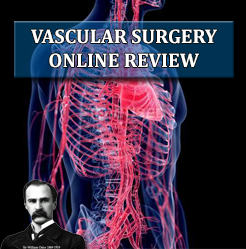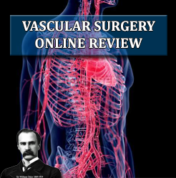Objectives
- Describe the fundamentals of the basic science that underlies vascular disease and its surgical treatment.
- Discuss comprehensive non-operative treatment of vascular disease to include drug therapy and risk factor reduction.
- Explain preoperative risk assessment as well as operative and postoperative critical care procedures for the vascular surgery patient.
- Discuss the fundamentals of vascular disease clinical evaluation to include: plethysmography, duplex ultrasonography, MRI and CT scans, angiography, and other tests used in the diagnosis of vascular disease.
- Appraise the indications and techniques related to open operative treatment of vascular disease of the cerebrovascular system, exclusive of intracranial vessels, as well as thoracic and abdominal vessels and those of the upper and lower extremities.
- Summarize the indications and techniques of endovascular intervention for all major vessels exclusive of intracranial and aortic arteries.
Faculty & Topics:
-Chelsea Dorsey, MD, RPVI
Assistant Professor of Surgery University of Chicago
Non-Atherosclerotic Vascular Diseases, Upper Extremity Arterial Disease, Lower Extremity Occlusive Disease, Lower Extremity Aneurysms,
-Peter Lin, MD, FACS
Professor Emeritus of Surgery Baylor College of Medicine
Cerobrovascular, Endovascular Therapy, Thoracic Outlet Syndrome, Vascular Trauma, Thoracic Aorta Aneurysms
-Ahmed Mahmoud, MD
Clinical Associate Professor of Surgery University of California, Davis
Aortoiliac Occlusive Diseases, AAA/Iliac Artery Aneurysms, Visceral Ischemic Syndromes, Renovascular Disorders, Visceral Artery Aneurysms
-Sandip Maru, MD, FACS, RPVI
Assistant Professor of Surgery University of New England
Management of Venous Disease, Lymphedema, Vascular Complications, Vascular Labs, Dialysis Access


